#shor tribe
Text
Indigenous people of Russia deserve to be heard.
#indigenous#culture#indigenous russia#indigenous russian#important#russia#fypシ#fypage#colonization#landback#russian imperialism#russian war crimes#russian genocide#stop russia#russia war#russia ukraine war#indigenous siberian#siberian indigenous#siberian#shor tribe#shor people#fyppage#fyp#fypツ#important videos#united nations#land back
191 notes
·
View notes
Text
you know i must have been bone-tired when this part of the herb brides lore didn't come to my mind when i discussed how the Kin fundamentally differs from the cultures it is inspired by um There Is The Human Sacrifice part. like it's an important part of pathologic 2 that you are doing human, or anthropomorphic (if you want to see the Herb Brides as closer to spirits, which comes with its own set of problematics regarding how to approach their oppression) sacrifice. it's an important part of pathologic 2 that you kill a woman, as part of the journey and in direct resonance with you ritualistically killing cattle earlier, and she offers herself to you with cultural and religious significance.
human sacrifices have been done across the globe for millennia, but i cannot, for the life of me, find any source at all that mentions the Buryats (since that was the discussion point) partaking in human sacrifices by the turn of the 19th-early 20th century (or even anything past the 16th). every single source mentioning offerings and sacrifices i've read mentions animals, things such as milk and vodka, and often both at once. would love to read anything about these rituals if papers exist, but i'm personally drawing a blank.
the Kin has Obvious and very Visible influences but it also differs from specific (in this discussion's case, the Buryats) or wider (here, turkic/mongolic as a whole) cultures from the area by so many pieces, big and small, that i wouldn't have enough appendages on my whole body to count them all. and sister. i have plenty of appendages.
#i AM reading a paper that mentions the human sacrifices at Mongol burials where people (typically servants or family) would be sacrificed#to accompany the dead; as well as the Shor practice of sacrificing women/girls (replaced apparently quickly by sacrificing ducks)#but those seem pretty old [the Mongol part mentions the 13th century] & like. nothing about the buryats in that time period#i'm like 85% sure i saw in the beginning of being into patho someone saying how equating the Kin; who practice human sacrifices [& others]#to correlate/be meant to represent Real Life ethnicities is insulting because They Don't Do That.#and like. everythingggg that touches upon representation/appreciation/appropriation/theft is subjective and#informed my how much leeway you're willing to give the creators so that's like#bro i'm just reading PDFs#also just found out the discussion of ''The Kin Is Obviously Inspired But Not Meant To Represent [x]'' is over 2yrs old. we're still at it.#as anon said. ''unless you're tolkien; coming up with a whole fictional language is hard''.#anyways appendage time. stuff that differs just out of the top of my head:#everything relating to the religion which is almost a complete inverse of buryat tengrist/shamanic faith + don't get me started on buddhism#the clothes. the homes. the creation myths; beyond the apparition of Clay; which is present in so many cultures on earth#no swan ancestor. no lake worship. no sky/heavens. no tens of named hierarchical deities. NO BURBOT! no hats. no hats (burts into tears)#NO HORSES? ON THE EURASIAN STEPPE?#the belief that earth mustn't be cut is so buryat. i'm sure i've read it. no idea if it is also in other mongolic peoples but buryat it is.#also a bull-ancestor/bull totem. that exists in buryat tribes; but they also have a bunchhhhh of other sacred animals (including. swans.#also horses. there's this [charm?] made out of horse hair there is)#neigh (blabbers)#i'm realizin how crazy i sound repeating shit that has been said 2yrs ago but like someone already mentioned the human sacrifice.#someone already mentioned the clothes. someone already mentioned the yurts/gers. someone already mentioned the religion#like i'm just. repeating stuff. and yet. give it up for year 2
20 notes
·
View notes
Text
My first real post
Just a little something I've written as a starter to a new story called "A Misty Memory"
---------------------------------------------------
Beyond the Endlands there is a legend: Deep below the cliffs, where none return, an immortal god resides. In dreams and slumber, this god shall hunger. It waits in patience and shows itself in manifestations. To those who wish to tread this path, I warn you of the Gods’ wrath.
It has been 100 years since the Attack on Cryptid Clearing, kings and queens have moved on and forgotten the great tragedy that befell the land, fewer still survive to tell the stories and visit the Great Grave. However, there is one that was there during the attack and doesn’t dare move on for they had lost many during the discovery of the Stones of Artoor. Their name is Caria, they have been kept alive for a purpose that had not been found yet so he traveled the land in search of this purpose, from the Mountains of Imprisonment to the Shallows of Shor.
During his search he had met plenty of interesting characters, one of which decided to accompany Caria. Caria met Krono during his visit to Kondor, capital of the Affendash Tribe. Historically they assisted the then king of Sanor, Giran, in building a genetically modified army for his pitiful war. Now 100 years later Affendash Tribe is its own self functioning monarchy, with a monarch that seemed no younger than 20 years. Krono was a well known adventurer of the region, exploring and mapping the great forest that surrounded the tribe.
“Hey! You there! Are you having trouble traversing the forest? I can help you.” Krono asked excitedly, noticing that Caria clearly had no idea where he was going despite being told how to get there by the current Queen of Rarksnet.
Caria looked over at the furry adventurer as it strolled towards him and responded “I could use some assistance, I seem to have gotten lost and I feel myself beginning to forget what the queen instructed for me to do.”
“Follow me, my name is Krono by the way. The queen really should have sent one of us with you since the forest doesn’t affect our minds, we’ve grown an immunity to it.” Krono remarked while walking along the shoreline of the forest, looking back every now and then to make sure Caria was indeed following.
It didn’t take long for the both of them to arrive at the gates of Kondor, the perimeter of the city had a well decorated stone wall, with archers posted on the towers overlooking the surrounding area. The metal gates were wide open, clearly they had been expecting Carias arrival. Two well armed guards began to escort Caria and Krono towards the great hall in the center of the city, inside there was a grand table with a chandelier above, the walls were ornate with gold and trophies, at the end of the hall was a grand throne, one too large for such a young monarch. Once the guards had escorted the two adventurers to the throne, the monarch that sat upon the lavish throne nodded at the royal guards prompting them to march back to their previous posts.
The young monarch sat up as they awaited for the two to bow before them, Caria and Krono glanced at eachother then kneeled before the monarch.
“Caria, I hear you have a message for me from Queen Lucera. A matter of urgency?” The monarch asked, clearly wondering why they needed to get involved in the petty issues of dwarves.
“Yes, Your Majesty. Queen Lucera asked me to repeat the message to you. She believes that the Legend of the Endlands is real, the god beyond the cliffs is haunting the dreams of her subjects. She fears that if the nightmares spread it may become powerful enough to show itself in its horrific manifestations.” Caria echoed the words he was told, he tried to hold back his own fear but his voice quivered slightly on the last sentence. He knew that if this god got into his dreams, his memories. He most certainly would go insane.
"This.. this is urgent. But how do we combat that which lives in dreams alone? We aren't able to find it, no one has ever managed to chart past the Endlands. Thank you Caria, I will plan a way for us to resist this god, for the meantime you should stay here, it's too dangerous for heroics." The Monarch told Caria.
people across the land knew the trials the adventurer had faced, many knew more of his triumphs. But no one knew what he had lost, even he was beginning to forget, or repress. Caria stood and nodded then began to walk away to the nearest tavern.
---------------------------------------------------
0 notes
Text
Crimson desert online donation offline

Firepet Spider “Rotisserie” (Non-Combat Pet) But the parades are long gone, and the synthetic steeds have been repurposed. “In my first months as a captive of the Reachmen, the only thing that made life bearable was my beloved pet, the Nightfall Sabre Cat Cub I was allowed as a companion.” -Arthenice Belloq Lustrous Nix-Ox Fabricant Steed “Splendiferous” (Mount)īefore Saints Llothis and Olms had to be confined in the Asylum Sanctorium, they used to ride through the Brass Fortress on holy days on these bizarre Fabricant mounts. Nightfall Sabre Car Cub “Duskitty” (Non-Combat Pet) Riding Skill does not affect this mount’s appearance. The Reachmen of the upper Karth valley, who train them as mounts, swear that the Nightfall variant is sacred to the Daedric Prince Nocturnal. Nightfall Sabre Cat “Chiaroscuro” (Mount) It is the only subspecies of guar known to enjoy music. In Black Marsh this mount is called Scales-Seem-Daubed-with-Hist-Sap, but the rest of Tamriel just calls it the Hist Guar. Voriplasm Staff (Weapon Styles > Staff)Īn Outfit look for staves in the Voriplasm style. Voriplasm Bow (Weapon Styles > Bow)Īn Outfit look for bows in the Voriplasm style. Voriplasm Battle Axe (Weapon Styles > Two-Handed)Īn Outfit look for two-handed weapons in the Voriplasm style. Xanmeer Crate Legendary Rewards Voriplasm Sword (Weapon Styles > One-Handed)Īn Outfit look for one-handed weapons in the Voriplasm style. This item can be converted to a large number of Crown Gems. Resplendent Sweetroll, Apex Consumable, Scalecaller Crown Crate (image is a small house item. “Sometimes Argonians want to travel a long way for a long time, and how do people do that? On mounts! And so useful lizards become Lizard Steeds of proven shapes, and then Argonians can ride, tall in the saddle and proud!” -Ukaspa of Lilmoth Resplendent Sweetroll I’ll take it!” -Celebrated Nord Envoy Rigurt the Brash Horse-Lizard Steed “Lizardhoof” (Mount) And you can ride it? Shor’s bones! That’s all I need to know. I don’t know, I just want one.” -Heem-Jas Bear-Lizard Steed “Roly-Scaly” (Mount) “Maybe the Camel-Lizard was created so we heroic Argonian adventurers could travel in arid climes like Anequina-or maybe it was so heroic Khajiiti adventurers could have something to ride in Black Marsh. “Some dryskins ask, ‘Since a Guar is already a swamp reptile mount, why create Lizard-Steeds shaped like Guar? Isn’t that somewhat redundant?’ These dryskins are unusually perceptive!” -Ukaspa of Lilmoth Camel-Lizard Steed “Moss-Spitter” (Mount) “More than once I have been asked, ‘Ukaspa, why are your lizard-steeds shaped like mounts from other parts of Tamriel? Why aren’t your so-very-handsome mounts shaped like, well, lizards?’ These are good questions!” -Ukaspa of Lilmoth Guar-Lizard Steed “Jaunty” (Mount) So convenient, our lizard-steeds, so scaly and personable!” -Ukaspa Senche-Lizard Steed “Kitty Lizard” (Mount) “Almost every stablemaster of the Marsh has fine, scaly lizard mounts available for purchase in various forms, all familiar to dryskins but specifically adapted to deep swamp conditions. Their Hist tree even drips with icicles (whatever they are)!” -Ukaspa Xanmeer Crate Apex Rewards Wolf-Lizard Steed “Scaly-Wolf” (Mount) “This Chilling Senche-Lizard is quite rare it comes from very deep in the swamp, from a tribe said to be dedicated to Frost spells as a means of living longer by living slower. Chilling Senche-Lizard “Frost-on-Scales” (Mount), Xanmeer Crown Crate, The Elder Scrolls Online

0 notes
Text
Virtual villagers 5 apk

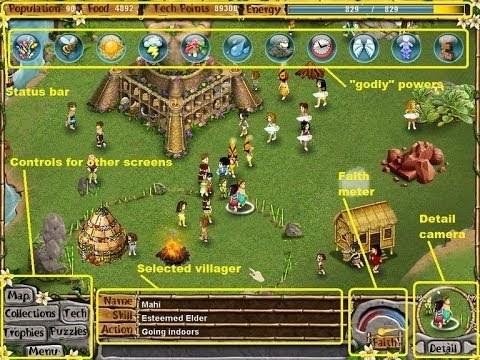
So, you could say he would just hang around in the village without contributing, aka unemployment. But unfortunately, players will sometimes find a resident who really does not have special skills. Its best to look for other residents who might be smarter.Įach resident can be trained to do their own, and there is data on a special page that shows their expertise. And, if it still cant, maybe the population is really stupid on the subject. So, players must try to order them to do this again. Unfortunately, because these people really still lack expertise, they sometimes only try briefly to carry out these activities and then give up. Or, if you want to order them to do research, do the same, and drop them onto the research table. For example, if a player wants to send a resident to pick fruit, then drag and drop the population onto fruit trees. So, to give orders to a resident, players only need to touch them, move them to a certain location, and drop them at that location. Virtual Villagers Origins use drag and drop style control. ☑ Allow your device to Install Apps manually (Check and Approve Unknown Sources)ĭownload MOD APK Direct SSL Connection More Virtual Villagers Origins Overview ☑ Minimum 3G, while 4G and Wi-Fi is recommended ☑ Slight improvement for Android simple security ✓ Easy User Interface Get Virtual Villagers Origins MOD APK Virtual Villagers Origins MOD APK Feature You will encounter no trouble for upgrading the building. Virtual Villagers Origins mod apk can help you to get unlimited food and unlimited tech points. That was the essence of the Last Day of Work game made by the Origins Virtual Villagers. Well, here is the task for players to give them a guide to survival, and provide a way for them to be able to make their village that once achieved greatness can come back again.

And, arguably, they are truly blind about how to survive. Unfortunately, from a small number of villagers who ran away, all of them did not have expertise. They again began to build new villages, and tried to survive on the new island, which was named Isola by them. They fled by boat, and finally stranded on the edge of an island. Some villagers fled their land, because of a volcanic eruption.
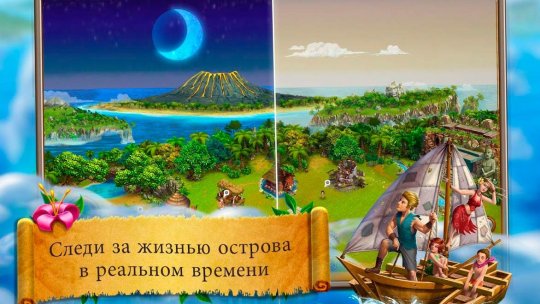
More Virtual Villagers Origins Overview About Virtual Villagers Origins Virtual Villagers Origins MOD APK FeatureĤ. Virtual Villagers Origins MOD APK DetailsĢ. Just found the problem of its and re-released it all over again with these shoes, its well worth to try.
Reincarnate cherished villagers with all their skills.Virtual Villagers Origins MOD APK: Just saw on some message boards with regards to this specific Virtual Villagers Origins mod, almost most of them didnt work anymore.
Acquire homes for two unique island pets that will help weed out pests and discover magical items around the island.
Power-up villagers with magical necklaces, totems and potions to improve productivity, life expectancy and much more!.
Build a sustainable village up from ruins, unlock improved food sources with farming and fishing, craft unique resources for puzzles and collections and so much more!.
Breed, heal and care for your beloved tribe family.
Gather and combine resources from around your new virtual village to craft rare resources and unlock rewards from completed collections.
Explore the paradise island to solve all-new puzzles and uncover mysterious island secrets.
Train villagers to become proficient at various skills to perform tasks around the island and survive their new-found world.
With game-changing, random island events, no two tribes will ever be quite the same!
Customize your villagers’ names and outfits.
There are earth quakes, volcanoes, poisonous frogs and many more dangers standing in your way! You must learn how to farm, gather resources and solve the island mysteries before it’s too late. This island was once a paradise and a home to a thriving civilization but has gone to ruin. When a family of castaways wash up on the shores of a mystical island, they must do anything to survive. Build a village, grow your tribe and survive in this simulated island game!

1 note
·
View note
Text
Ysmirii
Rumors spread quickly to the north, finding their way to his ear. The southern men, they say, have taken arms against their elven rulers, and the gods side with them; they say Kyne rallied them and sent forth a son of storms, who sailed through the skies and spoke like thunder, and their queen is her warrior-priestess. This all seemed to run the gambit from dubious to uninteresting to Ysmir, Dragon of the North, but one rumor did reach him, and did catch his attention, an excited murmuring among the chieftains, talk of an invincible warrior and champion to the revolt, a savior of men, enemy of elves, a god who walks.
"Shor has returned." They say.
And at this, Ysmir blows to the south, to the far distant fort at Heldon bridge, where the Paravanics make camp with the Nords of Kreath. He sees the tribes of the south eating and drinking with the Nords, who look to him with awe when they see him, and in hushed tones inform their southern neighbors of his reputation. His form is imposing without it, he towers over all in the camp as he searches for the subject of such strange rumors. A man in gleaming armor, smoother than even the finest elven craft, wearing a long white mane of hair; he sees a man of this description at the head of a bonfire, regaling chieftains of some vivid tale of blood and glory, of which they were enraptured.
He gestures with his hands out in front of him, Ysmir can see the death on his lips as he recounts his exploits, though unlike the Nords, his did not curve into any smile. It did not take long for his presence to be noticed, the man's unnerving golden eyes lock with his own and he becomes distracted from his story, words trailing off and becoming breath on the wind.
The chieftains turn to see Ysmir looming over the fire, and over them, and they stand from their seats only to kneel before him. This man, champion of the Nedes, rises to his feet and makes no such gesture. It's then that it is clear that he is not tall. He stands some number of heads shorter than Ysmir, closer in height to the southern men than the Nords, though his armor and countenance is nothing like theirs. The interlocking plates shine in the firelight, smooth like stalhrim, but dull gray in color.
He wears little hair on his face, save a strip of white below his lip, the same color as the mane of hair that falls to his shoulders- it's frayed and stained brown in places, elf's blood. Ysmir regards him in silence, and the whole of the camp falls into a hush as they view this meeting.
It is the Paravanic who speaks first. "You are Wulfharth." It's a question without the inflection of one. He seems stiff and serious to Ysmir, lacking a certain personable quality.
"Yes." Comes the response in a whisper that blows strands of white from his face. He doesn't blink.
"I've been told about you. They call you Ysmir, too, a name I wore once, for I've worn many." He speaks loudly, as though to reach Wulf all the way up there, but his cadence is awfully gentle for such a brutal warrior. "It is something I respect about you north-men, you understand that a man will have many names, as I have. They call me many things in Cyrod; Whitestrake, Triumph, Divine Crusader, but at my core," He places a fist to his chest. "I am Pelinal."
The camp is silent and still. Wind blows as the two warriors look to one another, content to merely stare in the space between words. For his part, Wulfharth seeks to analyze, for this man feels unlike anyone else here, or any either side of the mountains. While his eyes traveled up and down the knight stood before him, Pelinal's did not move, they seemed to bore straight through him as though imagining his insides. It is fortunate that Ysmir is not a man easily unnerved.
"Your men called me another name when I arrived." He said, interrupting what had been minutes of silence. Ysmir offered nothing but a soft exhale and a return to eye contact, and so he proceeded as Falkreath's chieftains watched on. "When I had crossed the bridge, helmet doffed, slick with blood, they called me 'Shor.'" Emotion takes to his face for the first time in this meeting, the slightest furrow of his brow at this syllable. "What say you to that, Ysmir? Do you agree?"
He seems aware, then, of why he's come to meet with him. The question lingered in the back of his mind all the while, but so far, he is no closer to reaching consensus. Pelinal's appearance is of little note, any Atmoran could tell you that the gods can take many forms, Shor was just as likely to appear as a fox than a man; this man wears himself strangely, this is certainly true, but is he divine? Even if he is, it doesn't mean he's Shor. Wulf thought he had a lot of ideas about who and what Shor is, but now, he's struggling to think of anything concrete that proves this man is or isn't Shor. He's a warrior like Shor, but he's a man; he hates the elves like Shor, revels in their destruction, but he has an elven name and fine armor like theirs; he fights alongside Kyne like Shor, but yet still, some have gossiped that he sings praises to the dragon, to Alduin, and counts him as an ally. Ysmir has yet to see this for himself, but still, looking down at the strange statue-still crusader, he only feels conflicted.
"I don't know." The words rumble out from his throat, some men- both north and south- have made space between themselves and the two warriors as they speak, the Nords forewarn their cousins of the power of Ysmir's voice, the Nedes warn them of Whitestrake's sudden and unpredictable fury in regards to talk of the gods. Only the brave generals and chieftains remain encircled around.
Pelinal blinks, and, just slightly, raises a brow. "You do not know?"
Wulf frowns for having to repeat himself. "No." The word blows through the camp, setting a deeper chill into the Cyrod-men's bones.
"Why would they call me Shor?" Pelinal asks as flatly as before.
Because they don't know their own gods, because they long for the living spirits of Atmora who walked the land beside them, because there is something familiar about this man.
"I don't know." He repeats, deeper and more forceful than before, sending the bonfire blowing in the breeze.
"What would it mean, were I Shor? Is this war I call you for the last? Are we on the eve of a new world? I should think not, and yes, but what of you?" The knight asks, demonstrating more than a passing knowledge, more than he lets on.
Maybe he is more of a trickster than at first thought. Like Shor was. Wulfharth grumbles to himself, holding back foolish words and questions. "I don't know." He rumbles.
"This is why you're here. Word spreads- despite my protests- and you come to meet with your god, but what is it really that brought you here? What need, what want? What is it that drove you?"
Who wouldn't want to meet their god, Ysmir thinks. Who wouldn't want to know Shor, to talk to him, to ask him a million questions? Maybe he too doesn't know his god, maybe he too longs for Atmora, maybe he too sees something familiar in this man.
Through gritted teeth, the reply blows forth. "I don't know..." And at this, the sounds of thunder surround them, and the brave men finally give way for the affairs of these heroes.
Pelinal remains resolute, and in fact, raises a hand suddenly, gesturing towards him. "You restrain yourself, Ysmir? Bah! I've heard your tongue before- your true tongue, not the languages of men, but that which they took for themselves and made killing-thunder, the dragon's-throat-in-hawk's-mouth. I understand it! Speak freely to me, Ysmir, have no fear, for we may speak to one another as equals!" And with this, he set his feet firmly to the ground, and looked expectantly to the Tongue.
With such mounting frustrations, Ysmir the Silent did speak, and no retreat could have been fast enough for the men who scattered in fear and awe. "ZU'U DREH NI MINDORAAN!" His words surged forth like a thunderclap, extinguishing the flame and blowing embers all around them, upturning tents and fleeing soldiers. "ZU'U LOST MEYZ DAHIK SAAG HON HI KOS SHOR! HI KOS MED SHOR, NUZ NI MED SHOR, AHRK ZU'U DREH NI MINDOK WAAN HI KOS SHOR!" All throughout, though lesser men were sent careening to the ground or thrown into the air by his voice, Pelinal stood firm, hair whipping behind him, boots dug into the ground beneath him as though he were one with the earth. Ysmir towers over him, fists clenched at his sides as his temper flares and his voice travels throughout the land, up and down the mountains, over rivers and streams, all heard his lamentation. "FUN ZEY WO HI KOS!"
Following his final syllables, a heart-sinking tone cries out from Pelinal's lips. It is loud and violent, like his own voice, but strikes a chord like no other Thu'um. His voice becomes the howling of the wind, the screams and foot-stomps of the soldiers, the crackling of bonfires; it becomes the rustling of grass and mighty tall trees, waves crashing along distant shores, rainfall and thunder, it is explosion, it is birdsong, it is laughter, it is screaming, it is everything he's ever heard set to the intonation of two repeating notes. It is a heartbeat. For what is the first time in many years, and one of the few times in his life, Wulf falls to his knees at the voice of another, his body trembling as the sound surrounds him, consumes him; he finds himself breathless, his heart pounding to match the timbre. The noise goes on, he can barely understand the words layered within it all. Doubled over on the ground, he can't see Pelinal close his mouth, and he can't hear it as the sound lingers on for a few moments.
He feels a hand land firm on his shoulder and looks up breathlessly. Whitestrake looks down at him with serious purpose, leaning in to whisper in his ear. "You are Ysmir, heir of Shor. The east holds your birthright. Do war with the elves, defend his creation from perversion and destroy those who would enslave it." Letting this words linger for a moment, he waits before turning and walking away, leaving great Ysmir kneeling before him, head hung in contemplation. The camp is almost deserted, the men waiting outside to be sure that the shouting is over with. Bonfires had extinguished, tents and supplies, weapons, armor, provisions, all lays strewn about in a messy circle around their meeting place, with high Ysmir laid low to the ground, watching Whitestrake disappear into their number.
A year later, Ysmir Wulfharth would join in the eastern invasion, for reasons he would never confide in anyone.
72 notes
·
View notes
Text
Explaining the Iceberg #4

I covered most things in this, but not everything. Every previous post I’ve made describing the tes iceberg I found on google image search can be found here x
Lorkhan’s purposeful failure: Lorkhan was the first spirit to go beyond the universe to see the tower, but didn’t achieve CHIM. He likely did this on purpose to show others how not to do it, and to demonstrate that it was difficult for et’ada to achieve this state because they simply don’t have the boundaries (such as death) that mortals do.
The World-Egg: The universe and the 12 previous Kalpas, everything within existence
The Khajiit Tower: this reddit thread https://www.reddit.com/r/teslore/comments/3oh7wf/the_khajiit_tower/ for everyone’s sake i’ll spare you the details of Jungian psychology, TL;DR the khajiit are a ‘tower’ made to hold up the universe and aspects of this
The Grabbers: Mentioned in the 36 lessons, a race of people in Lyg who are said to ‘have never built a city of their own’ there are theories that these are in fact Magne-Ge, due to their connection to Lyg by Mehrunes Dagon
AE: ‘is’ in ehlnofex, can be interpreted as a state of being
Shezzar became Akatosh: The only solid reference i could find was this thread, that immediately discusses how this is probably incorrect http://www.gamesas.com/could-lorkhan-have-jyggalag-t74581-25.html
The Monkey-Truth: Markuth’s teachings, also a website of tes fanfiction writers and roleplayers
Red Moment: The potential Dragon Break at Red Mountain
The Provisional House: Mentioned in the 36 Lessons, called ‘a space that is not a space’ that Vivec observes the events of Nirn from. It may possibly protect Vivec from dangers associated with this.
Alandro Sul: The Shield-Companion to Nerevar. Sometimes called ‘the immortal-son of Azura’. After being blinded by Wulfharth, he went to live with the Ashlanders of Vvardenfell and is credited with spreading the idea that the Tribunal killed Nerevar
CHIM: To put simply, the process and state where a person realizes their place within the universe and is able to manipulate the laws of the universe as they see fit. Often associated with the concept of ‘Love’
Skaal Secrets: Discussed in the Dragonborn DLC, it’s unknown what their secrets are, but the Skaal report that they’ve kept them a secret from Hermaeus Mora for generations
The World’s Teeth: Mentioned in the 36 lessons of Vivec, sermon 17. Vivec takes Nerevar to the edge of the world, where they see ‘the bottom row of the world’s teeth’ as Vivec states. This may possibly reference a glitch in Redguard. (as a side note: The Legend of Zelda Breath of the Wild, a game that’s confirmed to have taken inspiration from the Elder Scrolls, has an area on the map, near the edge of the world with a row of spikes similar to what’s described here. This might be just coincidence, but I sure enjoy it)
Dagoth Ur’s Endgame: Speculation on what Dagoth Ur’s final plans actually are. He speaks of his desire to remove the Empire from Morrowind, and unite the Dunmer under the 6th House, but beyond that there’s little to go off of. Ultimately this is just speculation and theories, mostly on what he plans to do with the Anumidium, and how that could possibly have adverse affects on reality.
Pelinal Cyborg from the Future: Another bit of obscure MK lore that’s not implemented in-game. This derives from the description of Pelinal having a ‘left hand made of a killing light’ ‘PELIN-EL [which is] "The Star-Made Knight" [and he] was arrayed in armor [from the future time].’ and his survival of being decapitated. While the text directly states he is from the future, there’s no ingame canon text stating he is a cyborg.
Reymon Ebonarm is Reman: The thought that Ebonarm, a God of War is the same person as Reman, emperor of Cyrodiil. There’s several theories dedicated to this, with different variants on the specifics.
The Enantiomorph: Directly tied to the concept of mantling and the Fourth Walking Way. Put simply, there are three participants in this. Two combatants who are very much alike and trying to become the ‘Ruling King’ and an observer who determines who wins, this observer usually becomes maimed as a result of this.
The Third Moon: Two different things, a metaphorical or literal secret moon important to the Khajiit that only appears when Masser and Secunda are aligned, preceding the birth of a Mane. The second option is the Necromancer’s Moon, the godly form of Mannimarco.
The Walkabout: A concept in Yokudan religion. The process of spirits surviving one Kalpa to the next, facilitated by Tall Papa
White-Gold Doomsday device: I remember reading this theory a few years back, unfortunately I cannot find the exact page for the life of me. The Tl;DR on this is the White-Gold Tower is a weapon of mass destruction, either literally or in metaphysical terms (being connected to Akatosh and it’s status as a Tower). The closest thing I can find to it is this thread which describes the motives of Umbra in the novels, and how it could potentially take over Tamriel using the White-Gold Tower http://www.gamesas.com/doomsday-scenario-t69430.html
Jiub was the Nerevarine: Self explanatory, headcanon that Jiub was the Nerevarine, similar to a headcanon on tumblr that stated Teldryn Sero was the Nerevarine
House Dwemer: Mentioned as a House within The War of the First Council (which is written by an Imperial for Western Scholars) and The Lost Prophecy (written by a Dunmer) This could be interpreted in a couple different ways. A) The first book was certainly written for western readers, while there is no evidence for this being the case for the latter, it can’t be ruled out. ‘House’ is used as a simplification B) The Dwemer were considered a house, but perhaps not in the way we would initially think (being on the Great House Council) They were grouped into a singular entity, rather than distinct clans within a cultural group (either during the First Council or posthumously)
When Dead Gods Dream: https://www.imperial-library.info/content/when-dead-gods-dream referencing this thread. Discusses the mechanisms of Dagoth Ur’s godhood, the thread explains it better than I can here, TL;DR Dagoth Ur is not alive, but he is within the realms of gods and therefor is able to ‘project’ himself onto Tamriel and the minds of his followers.
Khajiit ended the Metheric Era: Nothing found for this
Parabolic Kalpa: A parabola is a symmetrical U-shaped curve. This theory essentially tries to explain why Skyrim is so low magic, compared to it’s history or even ESO. The thought is that as time goes on, the world becomes less connected to Divinity. Towers are destroyed and the gods are gone, but eventually things will begin to kick off again, and there will be a rise in magic, technology and the connection to these beings. Essentially tries to explain why C0da and Loveletter from the 5th era are more high magic compared to the actual games.
Sithis: Secret Lesson from Vivec: Connects the both Sithis with the 36 lessons by terminology (The Sharmat, false dreamer ect.) and proposes Vivec may have written the book
Bendu Olo: Colovian King, may have been related to Olaj Olo, nordic demigod of mead. Also used as a placeholder name for the player character in Oblivion and the name of the dev’s test character in Skyrim
Trinimac still lives: An ESO lorebook states the Ashpit, realm of Malacath, extends into Aetherius. Some orcs also believe Malacath is nothing more than a demon presenting himself as the remnants of Trinimac. A r/teslore theory states that Malacath wears two faces. While I assume this is the Iceberg author’s sole reference, I propose this could (should) refer to another theory. (Another theory is similar to this on teslore, proposed around the same time, but this one connects the dots) https://boethiah.tumblr.com/post/621058598373588993/tsun-is-the-shield-brother-of-shor-and-trinimac
The Aedra are Dead: Seemingly a common topic on teslore. A basic concept in tes, the Aedra gave most of their powers to Mundus to stabilize it. Their bodies remain as planets, and they can only have limited interactions with Nirn.
Divayth Fyr was the Hero of Battlespire: An old theory that looks at artifacts in Divayth Fyr’s possession and ties them back to the tes spinoff Battlespire. There are holes in this theory (Divayth Fyr was a seasoned mage at the time the hero was an apprentice)
Three Talin’s: The default name given to the Eternal Champion is Talin, a character creation scenario proposes that their father was also named Talin, and finally Uriel Septim VII’s general was named Talin Warhaft.
Pelagius I was killed by the Underking: The Arcturian Heresy states that the Underking appeared as an advisor to Pelagius I, who was assassinated by the Dark Brotherhood. This theory is a possibility considering the amminosity between Tiber Septim and both components of the Underking.
Tsaesci Goa’uld: Goa’uld are a species from Stargate that are parasites towards humans. This theory proposes that the Tsaesci are similar, explaining the inconsistencies of their appearance within the lore.
Lunar currency: The thought that the Aedra and Daedra use mortal souls like currency
Historic Star Inconsistencies: Possibly referring to the variations of the number of days within the year in Arena, not sure about this one
Mnemoli/Star Orphans:Mnemoli is either a specific Magne-Ge (spirits that fled the creation of Mundus after Magnus), or a group of them that only appears during a Dragon Break (often nicknamed the ‘Blue Star’) MK states that they’re the writers and distributors of the physical Elder Scrolls (however this contradicts ingame books, so take it with a grain of salt). Star Orphans may or may not refer to Magne-Ge as a whole. Vehk’s book of hours state's them as a ‘group or tribe’ regardless, Mnemoli falls under this secondary classification (along with Merid-Nuda and Xero-Lyg, I have my own thoughts on this which would be better explained in another post)
Bosmer Hircine worship: Seemingly referring to a thread on 4pleb, I will not be summarizing this theory here because I’m smart and not going onto 4pleb of all places. But from canon content, Bosmer do not worship Hircine, and consider him a force that goes against Y’ffre and wants to return everything to it’s original state of chaos before the earthbones (Y’ffre being among them) stabilized things
Septimus Signus Zero Sum: The theory that the aforementioned zero-summed at the end of Discerning the Transmundane in Skyrim. Essentially Septimus is in a fragile state, delving into the secrets of the universe and is being pushed by Hermaeus Mora, who may see him as a lab rat, into discovering things he isn’t meant to handle as a mortal, and consequently Zero-Sums. There’s holes in this, namely Zero-Summing supposedly removes all trace of existence.
The Soft Doctrines of Magnus Invisible: A very obscure text by Douglas Goodall, discusses the binding of various gods
Abnegaurbic creed: An overly fancy word basically meaning religious beliefs, seen in Nu-Hattia Exerpt
Dunmereth: A Nordic term for the area of Morrowind, during their occupation of it
Fifteen-and-One Golden Tones: A Dwemer term, possibly referring to the spheres of the Daedra, counting Sheo/Jyggalag as a singular entity. Also, the Dwemer swear by these
Ideal Masters are God of Worms remnants: As Mannimarco is often said to be the first Lich, the existence of the ideal masters seems to contradict this (similar story with Azidal) this tries to rectify this by proposing that the Soul Carin is the Necromancer’s Moon, and the ideal masters are remnants of Mannimarco. This theory doesn’t hold up when examined, but is cool nonetheless.
Sermon 37: Found in ESO, an extra sermon to the 36 lessons, ties in concepts present in c0da like amaranth. (interestingly on this list Sermon Zero is never mentioned, despite it being older and more interesting imo, but to discuss that would require lots of work)
Flying Whales: Mentioned in Aldudagga. A now extinct species. The bone bridge of Sovngarde could potentially be a reference to this.
Joy-Snow: It’s cocaine
Mankar=Tharn: A theory that Mankar Cameron is Jagar Tharn, doesn’t hold much weight and relies mostly on the connection of Mehrunes Dagon
Sharmat: A term used to describe Dagoth Ur, an opposite to the Hortator, a force uniting people for evil. Implied to mean or be associated with ‘the False Dreamer’ a person whose view of the universe is similar to someone whose achieved CHIM, but sees themself as the center of it all, rather than a droplet in the ocean of the universe.
Pankratosword: A forbidden Yokudan sword technique that could ‘cut atoms’ similar to our modern day Nuclear Fission. A bit of etymology here, ‘Pankrato’ seems to refer to the word ‘Pankrator’ meaning all-powerful or almighty.
Landfall: A concept from MK, a future event where Nirn is destroyed by the Numidium, and the people remaining relocate to the moons.
Cylarne: The oldest ruin in the Shivering Isles, rumored to be the original capital. Home to the Cold Flame of Agnon
#long post#tes iceberg#that picture of vivec is how i'm feeling after 12 hours of studying for my final and writing this
180 notes
·
View notes
Text
I find it so weird that smart people I usually trust have started to just uncritically use the phrase "wokism" which seems to me to be incredibly vague and poorly defined.
I feel like some people use the phrase more or less as synonymous with the ol classic 'SJWs' which at least to my mind was relatively precise: a specific movement which originated online that was significant because of the focus on race and gender, and the 'correct' way of using language with respect to race and gender.
I might be ascribing more clarity to this term in hindsight, but when notable online commentators like Scott (Alexander) used the term it made sense - I understood the cluster of people and behaviours that were being pointed towards.
But with "wokeism" I feel like I have literally no idea. Is it just a new name for the SJW movement, or the "modern" 2021 version of that movement (whatever that is?). Is it left wing movements like Black Lives Matter? Is it the anti-racism movement as personified by people like DiAngelo and Kendi, which I'd describe as "liberal"/left moderate with its idiosyncratic individualistic emphasis and corporation-friendly operating model? Is it just a perjorative term for the left in general? I have literally no idea!! And the intended meaning is likely different for different authors!! This seems bad!!
It doesn't help that the term "woke" and "wokeism" has been so thoroughly co-opted by the right that it now functions as a tribe marker - only centrists and right wingers now use the phrase.
It just feels like in 2021 the Left is made up of multiple movements, some of them directly opposed, and using the word "wokeism" is a lazy catch-all that obscures more than it clarifies. We've got the DiAngelo/Kendi antiracists, the harder socialist, Sanders style materialists, trans activists, climate change activists (eg. Extinction rebellion, Sunrise), left moderates like Yglesias/David Shor... popular movements like BLM made up of multiple factions themselves....all of these groups are made up of different people with different politics!! Describing the BLM protests, for example, as "woke" doesn't necessarily make much sense to me (because those protesters were unified against police brutality but probably have little else in common) but describing the BLM organisation as "woke" does. We need more clarity here.
There's a certain irony to using the word "woke" in a mocking way, in that the popular conception of "wokeism" is an online echo chamber. Yet I get the sense that most modern critics of 2021 leftism really stopped engaging with actual leftists some time ago, because "woke" is such a singularly poor way of describing the left! I get the sense a lot of "centrist" style commentators don't follow many people to their left, but follow many more on their right - itself a particular kind of thought bubble with some real galaxy brained thinking at times! The focus on wokeism at all costs really seems to obscure the ability of these sorts of people to actually perceive realistic threats (eg. the current CRT backlash legislation that seems overwhelmingly the biggest threat to free speech in the US, the risk to democracy in the US from Republicans etc etc).
I really gotta question how much Scott, for example, follows or is aware of people like Chapo Trap House or Contrapoints/BreadTube (to pick a couple of big names). And you know, there's no personal obligation to be aware of these people. But it's sort of obvious when centrists only have a vague or outdated familiarity with the leftism they're criticising!! As much as I find Matt Yglesias, for example, to be infuriating at times, I know the guy has at least done his basic research and is actually aware of where the Left is today when he writes his longform posts. In between a bunch of dumb tweets there are good, serious criticisms of the Left as it is in 2021! I don't get that level of insight and awareness from most mainstream critiques of "wokeism", and it annoys me. Mainstream critics, get out of your centrist ideological echo chamber!! Lol
5 notes
·
View notes
Text
Bulgarisms in Khanty
This article deals with words derived from Bulgar Turkic in the Khanty language. Khanty is an Ob-Ugric language alongside Mansi, part of the larger Uralic language family. Bulgar Turkic left Chuvash as its only living descendant. These entries are from the article Булгаризмы в хантыйском языке (с дискуссионными комментариями А. Рона-Таша).
The words were borrowed into PXa = Proto Khanty
Legend:
PXa = Proto-Khanty
Ch. = Chuvash
Tat. = Tatar (North Kypchak Turkic)
Bsh. = Bashkir (North Kypchak Turkic)
PT = Proto-Turkic
*pætər-ŋææj
whirlpool (J pæ̆tərŋi) (with suffix -ŋææj, compare *küɲŋææj rainbow, Mansi *künɣəl, > V køɲŋi, J kɵnŋi, Dn kŏšŋɐj); < Ch. пĕтĕр- pĕdĕr- twist, roll up (> Mari pətəräš, pütɨraš), < PT büt-ir- braid, büt-iš- interweave > Turkish bitiş-mek, Tat. бөтер- bøter-, Bsk. бөтөргөс bøtørgøs detail of a loom
*jaaɣ
people (V, Vj. jaɣ, Trj, J jɒɣ, Kaz. jɔx > Mansi jɔɔxŋ) < Ch. йӑх jăx race, tribe, kin (> Mari jɨx, jɨxsɨr "infertile", with suffix -sɨr “without”) < OT uq~oq; Mongol ug "root, base"
*kæɲ ~ kiiɲ
disease (V, Vj, Vart, Sur, Mj, Trj, J ki̯ń; Š, Kaz, Sy χĭń; Kaz χĭń; > Mansi χiń) < Tat. кыен qɨjen, Bsh. ҡыйын qɨjɨn difficult, Ch. хĕн xĕn torture (> Mgy. kín "torture, pain") < PT *Kɨɨjn. The two variants seen in Khanty could be from separate borrowings from Tatar and Chuvash.
*pæć ~ piić
thigh (VT pitˈ; Vj pitˈ; I petˈ; Kaz, Sy peś), Mansi (LM peeś, P peś, K piś ~ piš, T piś ~ pīš) < POb.Ug. *piić thigh < Ch. пĕҫĕ pĕʑĕ thigh, hip < PT *buut. The Chuvash form comes from *buut + 3rd person possessive suffix –(s)ɨ > *buut-ɨ where tɨ > čɨ
*kooj-/ køøj-/ kaj-
remnant of shaved wood (Kaz (St) χǫjəŋ (χǫjŋɛm), Sy χujəŋ), < Ch. хӑйӑ xăjă splinter < PT *Kɨj- cut into small pieces, shred, mince > Turkish kıymak "mince, shred"
*ćuɭći ~ ćɨɭći
mouse (Kaz (St)śŏḷśi-păḷśi Kaz śŭʌ́śi, VT tˈuɭmi̮, Vj, VK tˈulˈmi̮, Likr tˈi̮zˈmi̮, Mj, Trj tˈi̮ʌ́əm little sharp-faced mouse), Mansi n. śolˈsi ~ śolśi ~ śōlˈśi ~ śōlˈiś [śōlˈśi]; LM śōlˈiś ~ śōliś ~ šolˈeś ~ śolˈes ~ śōlˈeš; LU šolˈš; P śolˈiś ~ śålˈiś; K sōliś ~ sōlˈeś ~ sōlˈiś ~ sōliś; T śalˈś ~ śalˈiś ~ šalˈš, < Ch. шӑши ʃăʒi/ šăži < PT. *sïčgan > Old Uyghur syčγˈn sïčɣan, Tatar тычкан tɨčkan, Kazakh тышқан tışqan, Southern Altai чычкан čɨčkan, Shor шышқан šïšqan, Uzbek sichqon, Uyghur چاشقان chashqan, Turkish sıçan.
Medial -ɭ- in Khanty may come from a dialectal form. Dialectal Chuvash šărži.
saart
pike fish (V, Vj, Vart, Likr, Mj sart (V surtəm); Trj, J sårt (surtəm); I sort; Kaz sɔrt; Sy sɔr); Mansi sort ~ sɒrt < POb.Ug. *saart; < Bsh. суртан surtan, Ch. ҫӑрт(т)ан ɕărdan ~ ɕărttan < PT *čortan > Ya. сордоҥ sordong, Tat. чуртан čurtan
*kaaŋrV ~ kuuŋrV
insect (Kaz (KT, St) χɔŋʽri; I tˈoŋχər); < Ch. хӑмӑр xămăr "drone" (male bee), хорт-хӑмӑр xort-xămăr "insect" (general) < PT *Koŋuŕ beetle > Tat. qoŋɣɨz, Ya. xomurduos, Khakas Xoos
9 notes
·
View notes
Photo
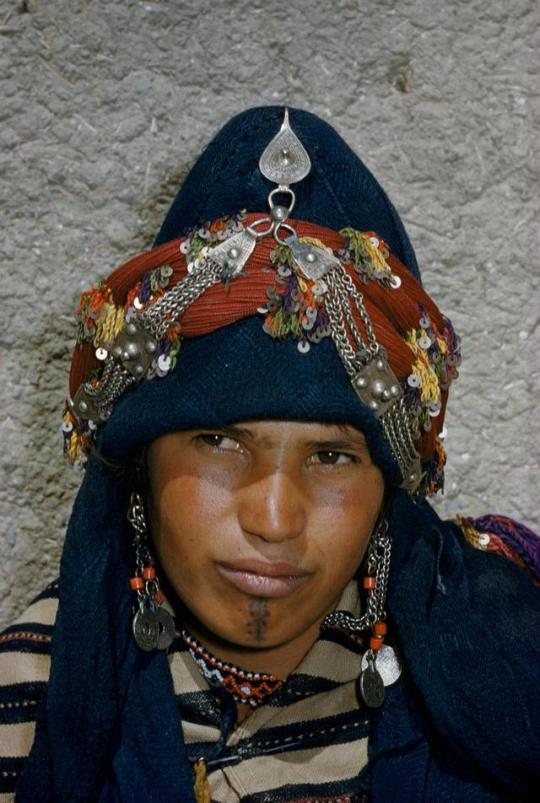
Berber woman of Ait Haddidu tribe wears her wealth in silver jewelry, French Morocco. (Franc & Jean Shor,National Geographic, Getty Images)
31 notes
·
View notes
Photo
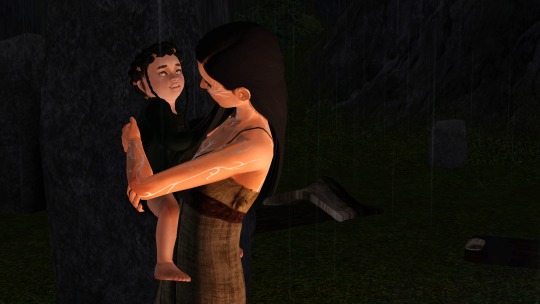
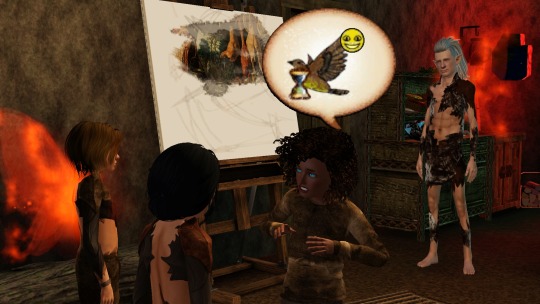
Elegant: “Diama! Thank the Goddess! Thank the Wolf! The men took you along! Now, love, if only we knew where their children ended up. They weren’t at the Bear-Tribes camp ...”
Elsewhere:
Shor: “And then the bad men bound us to a tree, and I was so scared, but suddenly, I felt totally weightless and I flew! Like a bird! I flew so high, and all the way back to here, and I saw the whole village from above!”
Winter: “Uh ... that’s nice!”
Flame: “I was there. I carried you. Thanks for giving me credit, you human ... creep. I don’t understand at all why dad made us rescue you.”
5 notes
·
View notes
Text
I am so proud of Yana for taking a stand against the blatant racism and the erasure of the Shor Indigenous. They are a very endangered group and this woman had to leave her own land because of the government due to her activism. She spoke out against coal mining that was destroying her land and has every right to do so.
Yana is also in the UN Human Rights Council. I respect and admire her very much. Her strength inspires me and I am glad to see our people stand up against the unfathomable racism Russia is consumed by.

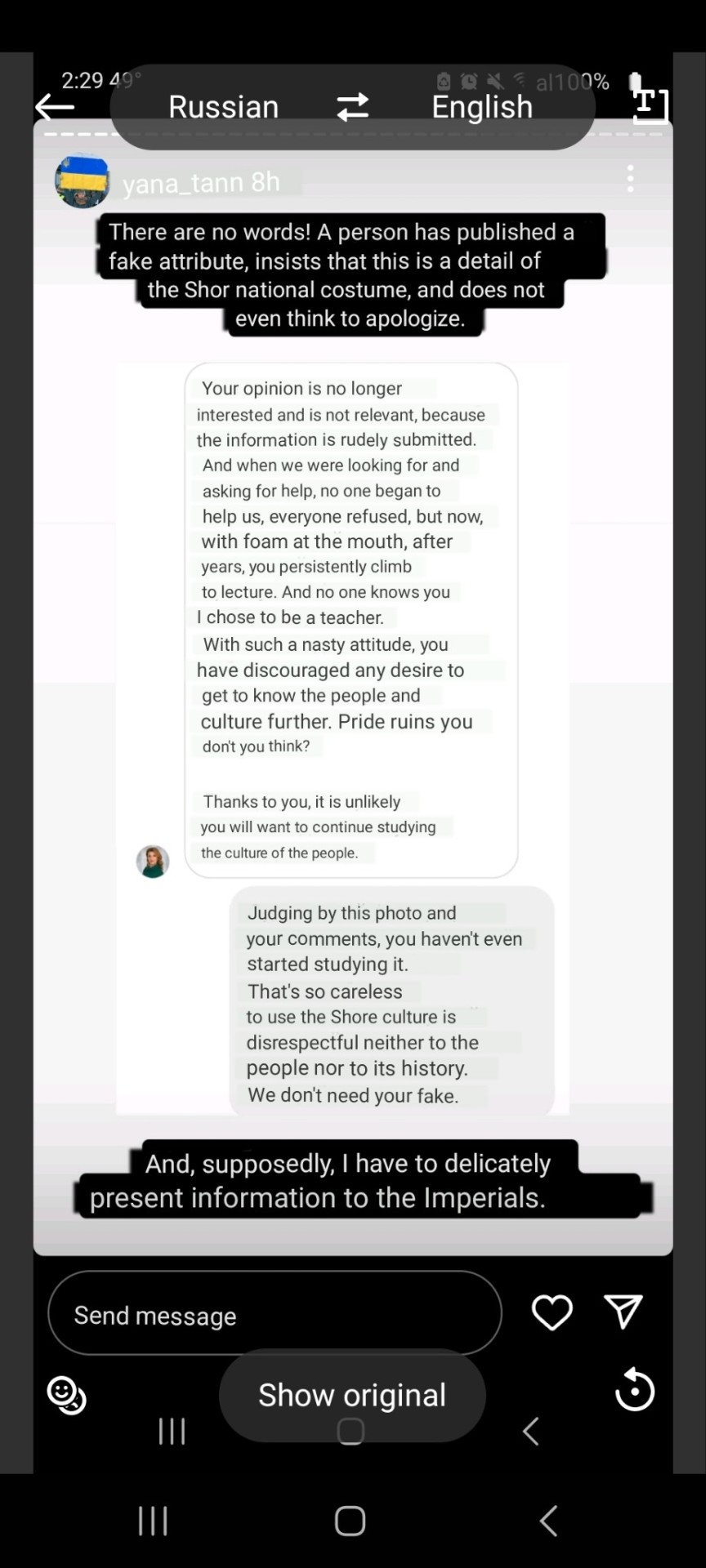
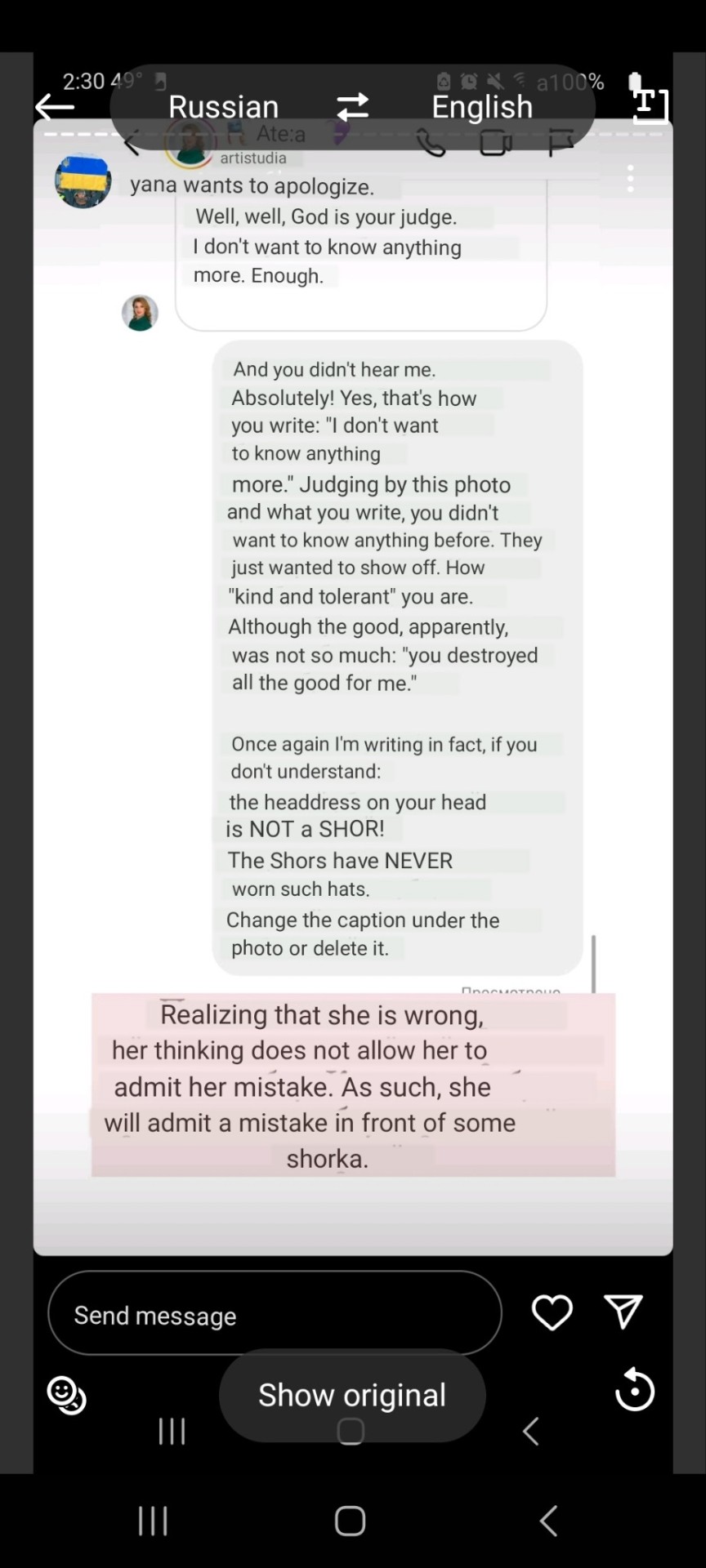


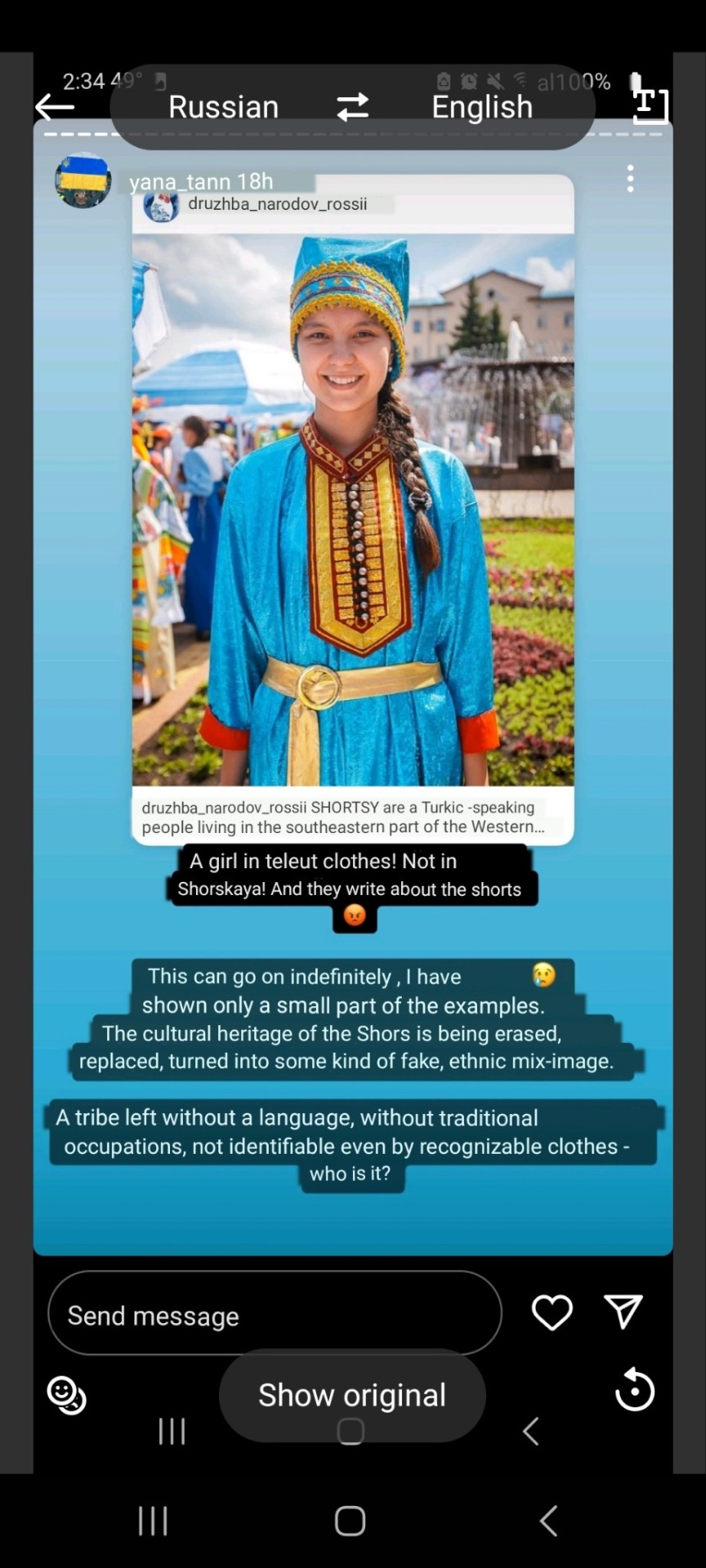
#imperialism#indigenous#culture#indigenous russia#indigenous russian#russia#important#fypシ#colonization#fypage#landback#shor tribe#Shor people#indigenous people#indigenous rights#indigenous representation#siberian indigenous#indigenous siberian#siberian#siberia
25 notes
·
View notes
Text
A FEW WORDS FOR HIS EXCELLENCY
In the opening paragraphs of his many books, he gives his introduction in words like these “this book ‘Muhik ul Faqar’ is written by Faqeer Sultan Bahu (Rahmatu-Allahe Ta-aala Alaihe), son of (Hazrat) Bazaid Rahmatu-Allahe Ta-aala Alaihe, surname A’waan, the resident of the suburbs of the Qala Shor Kot”. The Clan of ‘A’waan’ is the descendants of Hazrat Qutub Shah Rahmatu-Allahe Ta-aala Alaihe.
Family lineage of Hazrat Qutub Shah Rahmatu-Allahe Ta-aala Alaihe roots back to Emir ul Momineen Hazrat Ali Al Murtaza Bin Abi Taalib Karram Allah Wajhu through Hazrat Ameer Zubair Bin Khazan. It is quoted that Emir ul Momineen Hazrat Ali Al Murtaza Bin Abi Taalib Karram Allah Wajhu had eighteen sons: Sayyed Imam Hasan, Sayyed Imam Husain, Sayyed Mohsin, Ameer Abu Bakar, Ameer Umar, Ameer Usman, Ameen Ali, Ameer Sa’ad, Ameer Saeed, Ameer Taalib, Ameer Ibrahim, Ameer Aqeel, Ameer Zaid, Ameer Abbas, Ameer Talha, Ameer Abdullah, Ameer Zubair and Ameer Muhammad Hanfiya. In the book Fatawa Ghayasi, it has been mentioned that Maimna was the name of Zubair’s mother who was the progeny of Rustam (Champion) and ‘A’waan’ tribe are the desendants of Zubair. In the book Fatawa Ghayasi, the Family Lineage has been written like this:
Hazrat Sultan Bahu Rahmatu-Allahe Ta-aala Alaihe son of Hazrat Sultan Bazaid Muhammad Rahmatu-Allahe Ta-aala Alaihe son of Hazrat Shaikh Sultan Fateh Muhammad Rahmatu-Allahe Ta-aala Alaihe son of Hazrat Shaikh Allah Ditta son of Hazrat Shaikh Muhammad Tameem son of Hazrat Shaikh Muhammad Manaan son of Shaikh Moghla son of Shaikh Muhammad Paida son of Hazrat Shaikh Muhammad Seghar son of Shaikh Muhammad Anoon son of Shaikh Muhammad Salaa son of Hazrat Shaikh Muhammad Behari son of Hazrat Muhammad Jimoon son of Shaikh Muhammad Hargan son of Shaikh Anwar Shah son of Shaikh Ameer Shah son of Hazrat Shaikh Qutub Shah son of Hazrat Amaan Shah son of Hazrat Sultan Husain Shah son of Hazrat Shaikh Firoz Shah son of Hazrat Mahmood Shah son of Hazrat Shaikh Fartak Shah son of Hazrat Shaikh Nawab Shah son of Hazrat Shaikh Duraab Shah son of Hazrat Adhem Shah son of Hazrat Shaikh Abeeq Shah son of Hazrat Shaikh Sikandar Shah son of Hazrat Shaikh Ahmad Shah son of Hazrat Hijar Shah son of Hazrat Ameer Zubair son of Emir ul Momineen Hazrat Ali Al Murtaza Karram Allah Wajhu Bin Abi Taalib Bin Mutlib Bin Hashim Bin Abul Manaaf Bin Qasi Bin Kalaab Bin Ka’ab Bin Lawi Bin Ghalib Bin Fahar Bin Maalik Bin Nasar Bin Kanana Bin Hazeema Bin Madraka Bin Ilyas Bin Mazar Bin Nazar Bin Ma’ad Bin Adnan Bin Adnan Bin Ada Bin Adad Bin Hameeh Bin Hamal Bin Neet Bin Qaidar Bin Ismaeel Bin Ibrahim Bin Taarikh Bin Qaasir Bin Sharikh Bin Arghos Bin Faalikh Bin Shaalikh Bin Arfakhashad Bin Saam Bin Nooh Bin Yaro Bin Idrees Bin Ismaeel Bin Qeenaan Bin Anoosh Bin Shees Bin Adam Alaihis-Salaam. [May Allah forgive for any spelling error!]
There is no doubt in this that the A’waan people are descendants of Hazrat Ali Al Murtaza Bin Abi Taalib Karram Allah Wajhu. Some traces of Hashimi and Alvi are still found common in the general people of A’waan tribes in Pakistan like benevolence, bravery, modesty, faithfulness, honesty, trustfulness, firmness in promises, humanity, hospitability, charity and spending. They are ready to serve their guests with everything they have. All common and proper people of this nation remain below the threshold of rich persons as they all the time spend their wealth in the said activities and always remain under debts.
You can see unique photos in the photo gallery section further things like audio, books, mp3 download, abyat bahoo,audio books and it’s also a kind of online video platform you can easily see any video related to sultan bahoo and short documentary about the life of sultan bahoo.
Now these books in English, Urdu and Persian can be accessed with web and play store apps of following website https://www.hazratsultanbahu.com/books/ and https://www.haqbahu.com apps can be downloaded from these links
1. https://play.google.com/store/apps/developer?id=www.hazratsultanbahu.com
2. https://play.google.com/store/apps/details?id=com.BahuSultanHazrat.Makkah.Live.tv
3. https://play.google.com/store/apps/details?id=com.BahuSultanHazrat.Madina.Live.tv
4. https://play.google.com/store/apps/details?id=com.BahuSultanHazrat.naat.sharif.video.audio.mp3
5. https://play.google.com/store/apps/details?id=com.BahuSultanHazrat.web
#sultan bahu poetry#online video platform#karamat sultan bahoo#audio books#sultan bahoo#mp3 download#books online#allah ka kalam#sultan bahoo poetry#famous poetry#haq bahoo#photo gallery
1 note
·
View note
Photo

The Song of Heroes Zine team is proud to present our charity that proceeds will go towards: the Endangered Language Fund!
About the Fund
ELF is a 501©3 founded in 1996 with the goal of supporting endangered language preservation and documentation projects. Our main mechanism for supporting work on endangered languages has been funding grants to individuals, tribes, and museums. ELF’s grants have promoted work in over 60 countries and have funded a wide range of projects, from the development indigenous radio programs in South Dakota, to recording of the last living oral historian of the Shor language of western Siberia, to the establishment of orthographies and literacy materials to be used by endangered language teaching programs all over the world.
Pre-orders for Song of Heroes opens in late February!
Contributors
Schedule
15 notes
·
View notes
Text
The First Avci
When the first Ra Gada sailed to Tamriel one ship was set of course during a storm make them land on Alessian controlled High Rock. The group of 100 Yokudan children, elders, and teenagers stayed to the coast and killed anyone who saw them.
The group was lead by four of the teens three boys and a girl, the leaders were Osiris, Geb, Khon, and Mar. Mar and Gen were Hiradirge and could build golems from sand and castles in days, they used their ability to build tunnels underneath cities to steal food and other supplies for he group. Osiris was a novice at sword singing and could only keep his spirit sword only for a short period of time. Khon was a master sailor and a user of dawn magic particularly the ability to turn starlight into any weapon he wanted. The group eventually moved into the Druadach Mountains where they took one of the many abandoned strongholds and stayed their for two decades before receiving news of Yokudans building an empire in Hammerfell, The group led by the now adult Osiris and his wife Mar move half the colony of now 500 Yokudan adults and their children down to Hammerfell to join their brethren, while Geb and Khon kept the rest in the stronghold to help increase Yokudan influence in the area.
When Osiris and Mar reached the capital of Hegathe they spoke with the Na-Totambu about their stronghold and their group. The Na-Totambu voted to give them land near the Abecean Sea and allowed their stronghold to become official Yokudan property. Osiris and Mar had a message sent to Geb and Khon of the development and how had gain nobility in the new nation. Within a year the city of Taneth was built and with it the proud Avci clan. While Taneth was being built Geb and Khon had made contact with the Reachmen , The Nordic group was led by The King of Falkreath who was surprised to find a colony of dark skinned warriors fighting the Reachmen who had been attacking his hold. The King took a liking to Geb and Khon and offered that if they could help remove the remaining Reachmen from his lands then he would teach them the Thu’um. They agreed and led a large band of men and women who removed the Reachmen from the southern Reach. In their time fighting alongside the Nords the Yokudan warriors learned about Nordic culture and their gods. This led to many of the warriors adding some of the Nordic gods to their shrines such as Shor who they said was the brother of Tall Papa and the honorable side of Sep, Kyne was considered the sister of Tava and a helper of Tu’whacca. When the Yokudans returned to their stronghold they had found a army of Reachmen there to greet them.
The Reachmen were met with the Shouts of Geb and Khon which allowed the warriors to wipe out the army leaving only their leaders alive. The Yokudans has their captives led them to their homes in the western reach, The group killed many and burned their homes but before they left they took the King’s eldest daughter for a hostage should they ever try to come back.
The girl whose name was Laie was assigned as a caretaker of the children in a few months she knew basic Yoku and told the colony of Hircine’s Hunting prowess, Malacath’s honor, Sheogorath and his tricks, Mephala the webspinner, Nocturnal the mistress of shadow, and Azura the master of dawn and dusk. The Yokudans were abrasive to the new gods due the Nordic tales of Herma-Mora and his attempt at turning the nords into elves.
Laie has to teach the Yokudans the difference between the Daedra Prince of Knowledge and her tribes gods. The Yokudans slowly learned to respect Azura and Nocturnal as guardians of small children, Hircine became seen as the son of Kyne and Shor, Sheogorath was seen as a trickster god, Mephala as a keeper of family secrets, and Malacath as a protector of the weak and defenseless.
The idea for the pantheon was sent to Osiris and Mar who found the stories and idea for the pantheon interesting and secretly made them their family gods due to the Na-Totambu’s hate for anything non-Yokudan. Mar soon made friends with a Glenmoril witch who showed her a ritual that could summon any Daedra or Aedra depending on the caster’s magical ability and the time of day.
Mar had Osiris, Khon, and Geb all meet in a secluded mine out in the Alik’r Desert during the Winter Solstice of 1E 839. On this day the four friends summoned the Daedric Prince Nocturnal. The Yokudans knelt before the Prince with a agreement that would affect the Avci clan and the future of Tamriel.
The deal was that Nocturnal and the other Daedra of the Avci pantheon would gain steadfast followers out of the Avci clan, followers who would do their master’s bidding without hesitation. The Avci would be blessed by one of the Princes on their 18th birthday to serve them and would receive a mark of service that give them powers related to that Prince.
Nocturnal took a list of names both Daedric and Aedric, She told the group wait a week so she could see what she could do.
When the day finally came the Yokudans were surprised to find all of their Divine masters there. Hircine came in the form of a golden stag, Mephala in the form of a large spider, Malacath as an orc male, Sheogorath as a parrot, Azura as a orb of light, Kyne and Tava as twin Hawks, Leki as a Lioness, and Nocturnal as a Raven.
Each god changed the four Yokudans physical and magical traits.
Hircine gave them lycanthropy and the senses and reflexes of a wolf.
Mephala gave them the secrets of secret murder just as she did the Chimer.
Malacath gave them the height and strength of a orc.
Kyne gave them the ability to understand the creatures of the wilds.
Tava gave the ability to move as quick as the wind.
Azura gave them the magical prowess that could match any mer on Nirn.
Sheogorath gave them the ability to create songs that could drive a man mad and cause the sky to rain fire.
Leki taught them how to tether their souls to certain places and items so they could teach future generations should the Yokudan people forget how to create memory stones.
Nocturnal gave them ability to hide their new changes from anyone.
The four thanked their masters for their blessings and traveled back to the stronghold where they had each of the adult Avci branded by their gods making them the ideal warriors.
Osiris spent his last days stabilizing Taneth’s economy and pushing out the remaining elves from Hammerfell. Osiris died pushing out Warlord Thulgeg’s Orcish and Goblin army.
Geb slowly but surely learned to master the thu’um creating new shouts such as the Elemental Fury shout. Geb died amongst his many children in the stronghold in 899 year of the first era.
Mar slowly learned how to create portals into oblivion and Aetherius making it easier for each of the gods to do the marking ritual. Mar used her abilities to further Avci goals. Mar died in 1E 890 due to natural causes.
Khon traveled the entirety of Tamriel making friends with the Nedes of High Rock and Cyrodiil, The Nords of Skyrim, and the Kothringi of Black Marsh. Khon is believed to be the father of the first Redguards mixed with any other race on Tamriel . Khon died in the city of Falkreath in 1E 901.
17 notes
·
View notes
Text
Istalif in Peace and War
Edited by Farhad Azad
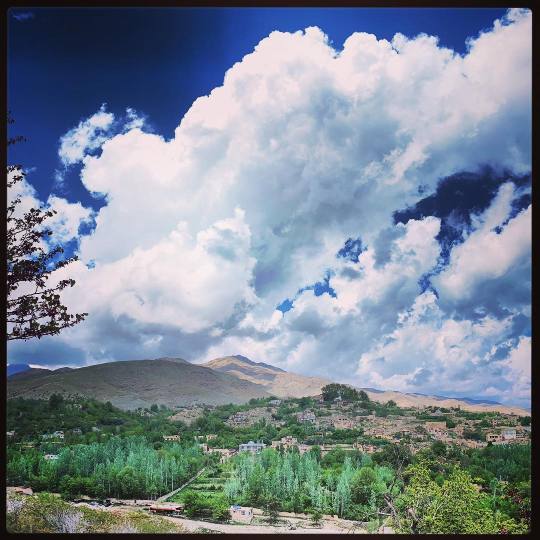
[caption: Untilted, by Yama Rahimi, Istalif, Spring 2019]
Istalif استالف, the beautiful vineyard town nestled on a large hill north of Kabul کابل, attracts hundreds of visitors a year. Its name originates from the Greek word "σταφύλια" (stafýlia) meaning grapes. No doubt since the time of the Greek colonization around 200 BC, the town was a destination resort admired for its beauty, the abundance of its grapes, lush flower gardens and red wine.
By the 1800s, the British set eyes on the hamlet. We’ll explore two accounts. One is in a time of peace, before the first Anglo-Afghan war. The other is in a time of war, at the closing of the first Anglo-Afghan War.
Time of Peace: Istalif October 1836
In October 1836, the Scottish agent Alexander Burns, in the service of the British East India Company, traveled north of Kabul and wrote about the Istalif. He experienced the breathtaking scenery and procured its rustic local wine. Burns spoke fluent Dari, favorited the country in also every facet, yet, as a genuine colonist, felt the locals should be treated as children. He told Charles Masson, the first amateur archeologist in modern-day Afghanistan, “the Afghans were to be treated as children.”
The following an account from Burns' book, Cabool, A Personal Narrative. It was published in 1842, over a year after his death-- hacked to bits by a Kabuli mob at his home in Shor Bazaar. Harboring the girlfriend of an Afghan nobleman was his offense. This scandalous incident, along with other financial blunders by British political elite, sparked the Afghans resistance in Kabul, which led to the British Indian army exit from Kabul resulting, in the well documented and discussed, disastrous retreat to Jalalabad.
Here is Burn's cheery account of Istalif.
After the turmoil of eating dinners and receiving visitors had been got over, and our business put in train, we all of us determined to visit the far-famed mountain-skirts of Kho-damun and Kohistan, which are situated north of Cabool.
We set out from Cabool on the morning of 13 October, and halted at Kareez-i-Meer, about fifteen miles from which we could see, in the hazy distance, a vast vista of gardens extending for some thirty or forty miles in length, and half as broad, terminated by Hindoo Koosh itself, white with snow. Next day we reached Shukurdura, where there is a royal garden, but which is now in a state of decay. Our next march was to Kahdura, and thence to Istalif, the great point of attraction.
No written description can do justice to this lovely and delightful country. Throughout the whole of our route we had been lingering amidst beautiful orchards, the banks of which were clustered over with wildflowers and plants, many of them common to Europe, and which were also in profuse abundance along the margins of the innumerable brooks which intersect the valleys.
The roads were shaded by noble and lofty walnut- trees, which excluded the sun's rays, never powerless in this climate. Every hill with a southern aspect had a vineyard on it, and the raisins were spread out on the ground and imparted a purple tinge to the hills. There were very few songsters however, to enliven the scene, most of the feathered tribe having flown to a warmer climate.
The coldness of the air, which had driven them away, was to us bracing and delightful, and only served to increase our enjoyment. I must not, however, speak in detail of this charming country, nor do the far-famed gardens of Istalif require any aid from me to establish their supremacy.
The roads were shaded by noble and lofty walnut trees, which excluded the sun's rays, never powerless in this climate. Every hill with a southern aspect had a vineyard on it, and the raisins were spread out on the ground and imparted a purple tinge to the hills.
There were very few songsters; however, to enliven the scene, most of the feathered tribe having flown to a warmer climate. The coldness of the air, which had driven them away, was to us bracing and delightful, and only served to increase our enjoyment.
I must not, however, speak in detail of this charming country, nor do the far-famed gardens of Istalif require any aid from me to establish their supremacy. Thessalian Tempé * could never have more delighted the eyes of an Ionian**, than did Istalif please Boetian Britons.
The people illuminated their town in the evening, in honor of their visitors. It had a pretty effect, but the beauties of art could not, in our opinion, compete with those of nature. Not so with our escort: they declared that Istalif had at all times been the abode of pleasure, and that, without wine, not only would the illumination lose its value, but Nature herself would be worth nothing.
We accordingly sent a few bottles of wine*** to which they did the amplest justice, although the "Moohtussib," a chief constable of Cabool, was of the party.
On the following day, I taxed him with this departure from the rules of his sect. He bore my bantering with great equanimity, and replied, with mock-heroic dignity, "Who, my lord, suspects me,—me, the 'Moohtussib,'—of indulging in wine? My duty is to reform the morals of others."
* Inspired by the lushness of its vegetation, the ancient Greeks dedicated Tempe to the cult of Apollo.
** Ionian a member of an ancient Hellenic people inhabiting Attica, parts of western Asia Minor
*** Winemaking is an old tradition in the region and throughout Afghanistan even today.
Time of War: Istalif October 1842
Six years after Burns' touristic stay, Istalif was destroyed by the British Indian Army of Retribution, in reprisal for the massacre of their comrades’ retreat from Kabul. By September 1842, once the word spread of the British arriving in Kabul to cast revenge, hundreds of Kabulis evacuated to Istalif.
The atrocities in Istalif is amply recorded in Sir Neville Chamberlain's personal narrative. He led the cavalry forces north of Kabul. Along the way, the army and the camp followers burnt, looted, killed teenage boys and men and raped the women. The whole war stirred Western xenophobia in the hearts of Afghans well into the following century.
In perfect colonialistic tone, Chamberlain, one of the leaders of the plundering forces, depicts himself as a fair gentleman and savior of the pretty Afghan women. He even records a “romance” between a young British officer and an "Afghan maiden" encountered during the raping and pillaging-- enter the cliche of the "noble Englishman" saving the native from the plunder. Ironically, this chaos was instigated by the British.
Here is Chamberlain's log about his arrival and pillage of Istalif. It was published in 1909 in the book Life of Field-Marshal Sir Neville Chamberlain by Sir George Forrest.
28 September— Marched towards Istaliffe, our road lying through a most beautiful country, sometimes through vineyards filled with the most luxurious grapes of all colours and kind, sometimes along the banks of a clear stream and through green fields. We pitched our camp opposite the place about three miles distant, a fine plain intervening. About three in the afternoon the General and a party went to reconnoiter preparatory to an attack next morning. On our approach, some horse and foot came into the plain to annoy us and prevent our going too close. The point of attack being determined on, we returned to camp, skirmishers following us. We had a horse killed and a man or two hits. A quiet night and no firing.
29 September— At daybreak formed two columns of attack and moved on the place. The cavalry were left in the plain to guard the baggage, as they would be useless among hills and gardens. Before I tell you any more it may be as well that I should endeavour to give you some description of Istaliffe. The town is built upon the spurs that run from the Hindoo Koosh range of mountains into the valley of Kohistan so that when seen from the valley it appears half-way into the skies. The ravines of the mountain are clothed with the most luxuriant vines, and many springs issuing from the rocks at the back of the town went their way into the plain, carrying with them fertility; gardens, orchards, magnificent trees, and here and there a water-mill and cottages adorn the foot of the mountain; and behind Istaliffe its summit towers almost perpendicularly.
We could perceive the tracks by which one can pass into the countries towards Turkistan, but they must be very difficult of ascent. To continue my story. Of course, we soon drove the enemy from the gardens; they attempted to defend the heights, but height after the height was taken, and we found ourselves in the town. When we had nearly gained it we saw a quantity of figures dressed in white ascending the mountains, and taking them for Ghazees our guns opened on them, and I am sorry to say some fell; when we got a little closer we perceived they were women!
Of course, when we found our mistake the poor creatures were allowed to go unmolested, but they must have had a terrible night, poor innocent things, as it was very cold; and fancy what they must have suffered, so many thousand feet above us, without clothing or shelter! And some must have died, I think, from the mere exertion of walking, never having in their lives been farther than the garden attached to the harem.
Fortunately, there was some brushwood on the mountain, so that they were able to make fires; and when it became dark hundreds were to be seen dotted about, and at such a height that they appeared as if they were hanging in the air. The scene on entering the town is beyond description.
Tents, baggage, things of all description lying about the streets, and the bodies of the unfortunate men who had delayed their departure too long, or who were too brave to fly and leave their wives and children to our mercy without first sacrificing their own lives in their defense. I suppose I need not tell you that no male above fourteen years were spared, and some of the men (brutes except in form) wanted to wreak their vengeance on the women.
Horses and cattle of all descriptions were to be seen about the place without owners; but they soon found claimants, for as soon as all visible enemies were disposed of the work of pillage commenced. I should tell you that the greatest part of the merchandise of Cabul and the harems of the principal chiefs had been removed to Istaliffe on hearing of our advance on the capital, as it had always been deemed impregnable by the Affghans; and they considered all their treasures safe here, and which accounts for the Ghazees fighting so badly, being at first over-confident; and when, to their consternation, they saw the fancied impregnable posts fall into our hands, they thought only how to provide for the safety of their families and carry off their valuables, instead of defending the town to the last.
The scene of plunder was dreadful. Every house filled with soldiers, both European and native, and completely gutted. Furniture, clothes, merchandise of all sorts flung from windows into the streets (it being too long a process to bring them downstairs) and scrambled for by those below.
On the bazaar being discovered, it was soon taken possession of by hundreds: the confusion baffles description. The rich shops had a dozen owners who quarreled about the distribution of its contents, while bales of the commoner kind were lying about unheeded. Some who had already made their assortment were returning towards camp, nearly blocking up the road by the immense loads they carried off, and certainly appeared more like hucksters than soldiers.
Others, who had not been so fortunate as to find anything they fancied, were running to take the place of their luckier companions. It was curious to see their various tastes displayed in the selection of booty. Some took arms, some jewels, other books! Some, again, fancied silks and satins, shawls; those who, I suppose, had a liking for ladies, possessed themselves of their clothes, of which there were a great quantity; tea and tobacco had great attractions with many; and more than one sweet-toothed fellow might be seen labouring under a load of sugar and bonbons.
When the soldiers had satisfied themselves, the camp-followers were let loose into the place, and they completed the business of spoliation. The goods found in Istaliffe were valued at some two hundred thousand pounds; and a great deal of the property that had belonged to the unfortunate Cabul force was found in the town, the sight of which, relics of their comrades, exasperated the men to the highest pitch.
Some soldiers were fortunate enough to find money to a large amount. A Captain Webster, wanting a bridle for his horse, bought one of a sepoy, which, on being cleaned, was found to have gold mountings of great value. The women and children that had been left behind were collected, placed under a guard, and taken to camp.
The loss of the enemy was about 200 killed; ours very trifling. We lost a very nice young fellow of the name of Evans. It being reported to him that our own people were ill-treating the women, he flew to their protection, when he was shot dead.
His servant (a soldier) on seeing his master fall ran towards him when he also fell to rise no more. A third went forward, but he also was struck to the ground by a severe wound. An ineffectual attempt was made to break open the house where the persons were concealed who did the deed; it was then set on fire.
Whilst we were taking the town we saw a poor little chubby-faced boy sitting on one side of the road crying fit to break his heart; the poor little fellow had been deserted, or in the hurry left by his parents, and fearing that he might get killed, several of us endeavoured to bring him away, but nothing could induce him to stir.
No harm befell him, as on leaving the place I saw him in the same position, and crying as bitterly as ever. Poor little fellow, I can well fancy his despair! But all this time you may perhaps ask how I participated in the attack when I have told you that the cavalry were kept in the plain.
The truth is that I was sent with orders to the infantry on their clearing the gardens, and when once among the fun, I could not tear myself away from it. I got rid of my horse by getting a commissariat officer to mount him, so was then unencumbered, and free to go anywhere."
The young man then proceeds to relate how he rescued an Afghan maiden and fell fiercely in love, and how his affections were, "as is too often the case, trifled with."
On forcing open a large house in the town, we found it contained merchandise of the most valuable description, which immediately fell a prey to my followers, a motley band, composed of men of all regiments and all colours — British, Hindu, Mussulmans, Goorkal.
My share of the booty of Istaliffe was a rifle that I found in one of the lower rooms of this house, and which I took at the time as a defensive weapon, and afterwards gave away to an officer who was killed by my side in the Khyber Pass.
Most of the men, over whom I had no control, stopped below to plunder, but some of the less avaricious followed me to the upper apartments. On the roof, which was flat, were built some summer rooms facing into the courtyard. As I stepped on it, the first object that met my eyes was a woman in her walking dress and veiled. I rushed towards her to prevent the men on the stairs close behind me from firing, as generally when any living object presented itself a dozen muskets were discharged.
My ears were now assailed by the wailings of many women from the summer rooms. I caught hold of the poor girl, who was sobbing bitterly, and entreated her to go to the other women, and promised she should be safe, but she prayed and beseeched to be allowed to remain there; but as I knew if I consented it would be her ruin, I at length prevailed on her, by dint of promises and kind words, to rise and leave the place.
As she did so, I discovered for the first time a hole in the wall against which she had been leaning which was half-built up with loose bricks, and I asked her if anyone was concealed there, but she answered with agony depicted on her face, ' No; oh no! '
I thought at the time that she was not telling the truth, but I took her to the other ladies, and what a scene of sorrow was that! There were about thirty of them, screaming, tearing their hair, smearing their faces with white, and presenting a most pitiable spectacle. They were most of them dressed for a start, only we had been too quick for them.
Fear had banished modesty, and they were all unveiled! Chiefly young women, and some of them very pretty. My young lady was perhaps not so fair as the others, but she had a very pleasing and amiable countenance. Just now another officer joined me, and while he stood sentry over the doors of the women's rooms I went to search the place my fair one had tried to conceal.
Whilst the above interesting scene was taking place, every corner of the house had been filled by the soldiers who were loading themselves with the spoil, and many a musket shot was also heard which sent some male of the family who had not been fortunate enough to conceal his hiding- place into the next world.
Several were killed before me. Tears, supplications were of no avail, fierce oaths were the only answer; the musket was deliberately raised, the trigger pulled, and happy was he who fell dead! Sometimes they were only wounded and were finished by a second ball, and sometimes the powder only flashed in the pan as if in mockery of their agony.
These horrible murders (for such alone must they be in the eyes of God) were truly wicked; the only thing to be said in their extenuation is, that the Affghans who then suffered were the very men who had inflicted every kind of torture on our own countrymen and Hindustanees. To return.
On pulling down the bricks with which the hole was stopped up, I perceived that it was the entrance to a dark cavern, and the aperture leading to it was only sufficiently large to allow of one man at a time drawing himself through on his stomach.
I thrust my own head into the place to try and see if anyone was inside, little thinking of the danger I ran in so doing, as I might have been shot or have had my head cut off without seeing my executioner. We commenced digging down into the cavern, but finding that that would be a tedious job, we left off; and whilst I stood at the mouth a shot was fired from inside, which whizzed past my legs and struck the opposite wall.
This fully proved to us that there were some fellows in it, and we crammed the hole with musket barrels and fired a volley. On this, out rushed my heroine with a scream, calling out, 'You have killed him, you have killed him!'
I raised her from the ground, but she knelt to me, and then threw her arms round my waist, and, looking into my face, said, 'Spare him, spare him.' It was not possible to withstand the pleading of that beautiful face, and then she appealed to me to save his life for the love of the Prophet Christ, and for the sake of my mother and sisters! Of course, I promised to save all that might be there, and then she went to the aperture and called on 'her father to come out.'
First of all, three or four little boys came out and toddled over to the women's apartments; then came a fine old man, her father, with a beautiful grey beard, and then three other men.
It was with the greatest difficulty that I could keep my word, as there were some bloodthirsty fellows who swore they would kill them, poking at them with their bayonets, though they did not dare to fire because of me. I may mention that in their hiding-place, we found guns, swords, pistols, and shields, and also by firing out at us they had forfeited their lives by the rules of war.
The officer who was with me, of H.M. 41st Foot, and I were obliged to keep watch over them and the ladies' rooms, or the moment we left them the doors were knocked open, and they were frightened to death at the sight of the men and their firearms, and also by their rough behaviour.
It was only by being determined that we could prevent them from searching for any jewels the ladies might have on their persons. When we proposed taking them to the Persian camp (it being the only safe place), which was close alongside of our own, they were at first afraid and wanted me to remain with them; that was out of the question.
And at length, on informing them that a chief of the Kuzzil-bashes was with us, on whose protection they could count, they consented to come, and off we started. It was a long way to camp, and the poor women, who had not been much accustomed to walk, were completely tired; so after getting them away from the town and out of danger, I left them under the charge of a few men who had accompanied me, and proceeded myself to the Kuzzilbash chief, told him what had occurred, and procured horses for the whole party. On my return we mounted all the ladies and conveyed them safe into camp, receiving their thanks and blessings.
It even now gives me pleasure to think of the heroine of my tale, and her fair form often flits before me, and I felt at the time that I would willingly have sacrificed my life at her word; yet it was not her beauty which captivated me, for there were many others perhaps prettier, but it was her devotion and affection towards her father.
I must not omit to mention one or two little incidents which occurred whilst bringing the women from the town. We had several watercourses to cross, and, of course, I did the polite in handing them over. On my telling one of the soldiers to take care not to be rough to them, he replied:' Lord bless you, sir, I wouldn't hurt one of these poor creatures for the world, but I would shoot one of those (pointing to the men) like a dog! '
One of the others was killed, but by whom or when or how I know not. I fancy he must have been endeavouring to escape, for the next day I found his body lying in the street. As we proceeded towards camp the ladies requested I would halt, as they were thirsty.
Vanity even at this moment held its sway, for on watching their movements, I saw them busily engaged washing the white off their faces and arranging their hair! Now and then, when the loss of property came to their recollection, they would burst into tears again.
You may picture to your self my uncomfortable and odd position. All reserve was thrown off by them, and they talked to me as freely as if I had been their husband!
Their veils were thrown back, and this, in a Mussulman country where they are so strict about their women that they are never to be seen but in close veiled dresses, and speaking to a Feringee at any other time would have been death if seen by an Afghan; however, it must be owned that often in Cabul and Candahar, if one happened to meet a woman in any by-street, she could seldom withstand the pleasure of throwing up the horrid veil and showing her pretty face!
Well, imagine to yourself your humble servant with an infant in his arms, at the head of twenty or thirty fair ones, occasionally being called 'Aga Jan,' — my Lord, my Life, or the Lord of Life, — 'not to walk so fast!' And thus we wended our way through the pretty gardens to camp.
Modern Day Destruction and Xenophobia
In 1999, Istalif was destroyed, including its main mosque and the ceramic workshops-- one of its primary industries. The grapevines were burnt and the fruit trees chopped to the base. This destruction was orchestrated by the forces of the Taliban and their foreign allies.
I took a trip to the area in September 2002, almost 160 years after the British Indian Army of Retribution. A posted sign read, “Welcome to the burnt land of Istalif.” On route, our van was stopped at a checkpoint guarded by local militiamen. They immediately peeked in the vehicle scanning for Pakistanis and Arabs. I asked what would you do if they found one? One guard replied, "Shot them." These locals clearly demonstrated their aggressive sentiment against these lates outsiders.
Inside Istalif, I met a group of French soldiers enjoying the early afternoon sun. They were unmolested by the locals because they hadn’t caused any harm to the population.
Today Istalif is rebuilt. The vineyards produce plenty of grapes, the ceramic industry is active and folks continue visiting the town. Hopefully, peace prevails and this heavenly spot can be enjoyed by more people across the world.
More About Istalif
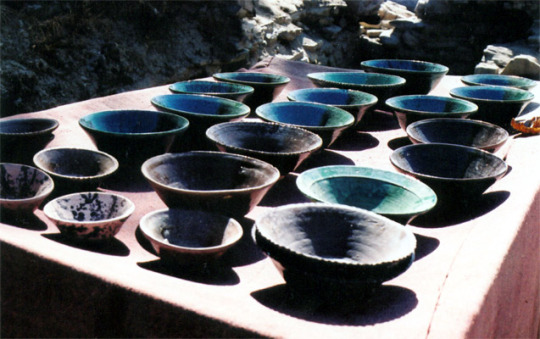
[caption: The ceramic workshop returned in Istalif following the Taliban’s scorched-earth campaign of 1999. September 2002. Photo by Farhad Azad]
Revisiting Istalif, Famed For Pottery And Picnics
December 23, 2011, NPR
Afghans Return to Garden Spot Wasted by Taliban
January 2002, Washington Post
An account of the Taliban's scorched-earth campaign in the region and the slow return of the population.
Ceramics from Istalif
Turquoise Mountain Foundation, sponsored by Prince Charles, Prince of Wales
0 notes